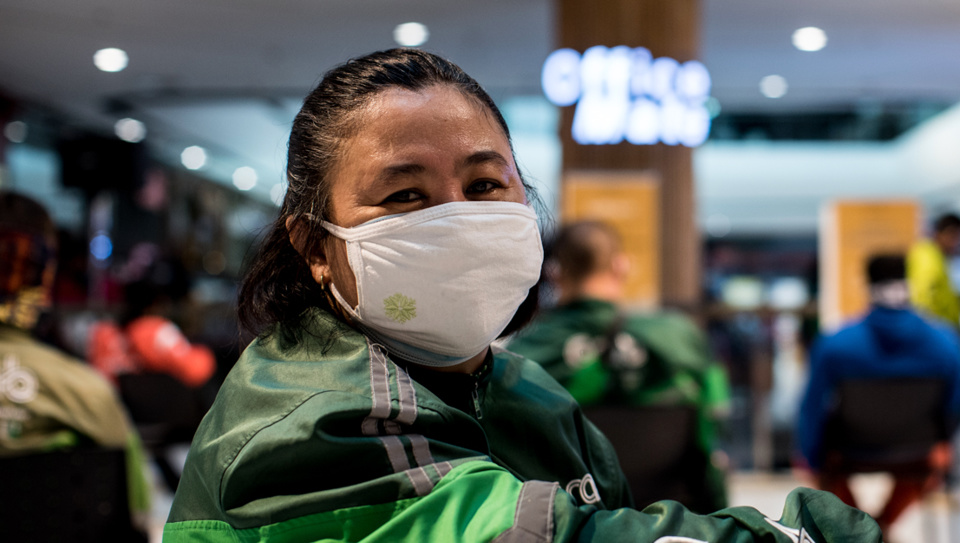From where I stand: “I am now more likely to face health risks, but I have no choice”
Parinya Sirirattanapanya used to have a pop-up clothing shop in Bangkok, which is now shut down because of the COVID-19 outbreak. She has turned to the food delivery industry, since that’s one of the few essential services still operating. Every day that she goes out to work on her motorbike, she is exposed to the risk of being infected. But as millions of women who work as daily wage earners, small business owners and in the informal economy, she doesn’t have the safety nets to allow her to stay home and not work. This is what her day looks like now, on the frontlines of COVID-19.Date:

Due to the COVID-19 outbreak, the number of food deliverers is rapidly increasing, and I have noticed that many women are working in this area.
I am now more likely to face health risks, but I have no choice – I need the financial support for my family.
Before the outbreak, I didn’t have any health scares. Now, I take better care of myself and do not wait until my body sends me a signal. My family is concerned about my health, but I try my best to protect myself so that I don’t bring the virus back to my family and community.
When I go to work, I wear jackets, two face masks (fabric and hygienic) and gloves to minimize the risk of being infected. I prepare hand sanitizers and antibacterial sprays to take with me. Every time I return change to customers (if I have to take off my gloves), I wash my hands or clean them with hand sanitizer. When I return home, I go straight to the washing machine, wash my clothes and fabric mask. Then I go right into the shower before joining my husband and my son at the dining table.
While my husband and I are off to work, my son stays home.
The testing capacity for Covid-19 is really limited. I hope everyone could get tested free of cost. Then we can minimize the spread of Covid-19. I know that several measures are being implemented to reduce the [spread] of the virus, but many people in the society take them for granted. Taking social responsibility is essential in this situation.
Both men and women are affected by this pandemic; there shouldn’t be any rules saying that men have to go to work and women have to take care of children at home. We should support each other and overcome this crisis together.”
Parinya Sirirattanapanya is a 44-year-old small-business owner who now works as a full-time food-delivery driver in Bangkok, Thailand. UN Women is working with governments around the world to support strategies that specifically target the socio-economic impact of the outbreak on women. The majority of health care workers are women, and many of the industries directly impacted by COVID-19 have a high concentration of women. An effective response to COVID-19 needs to take into account women’s voices, experiences and leadership. For more information, visit our In Focus page on Women and COVID-19 in Asia-Pacific.